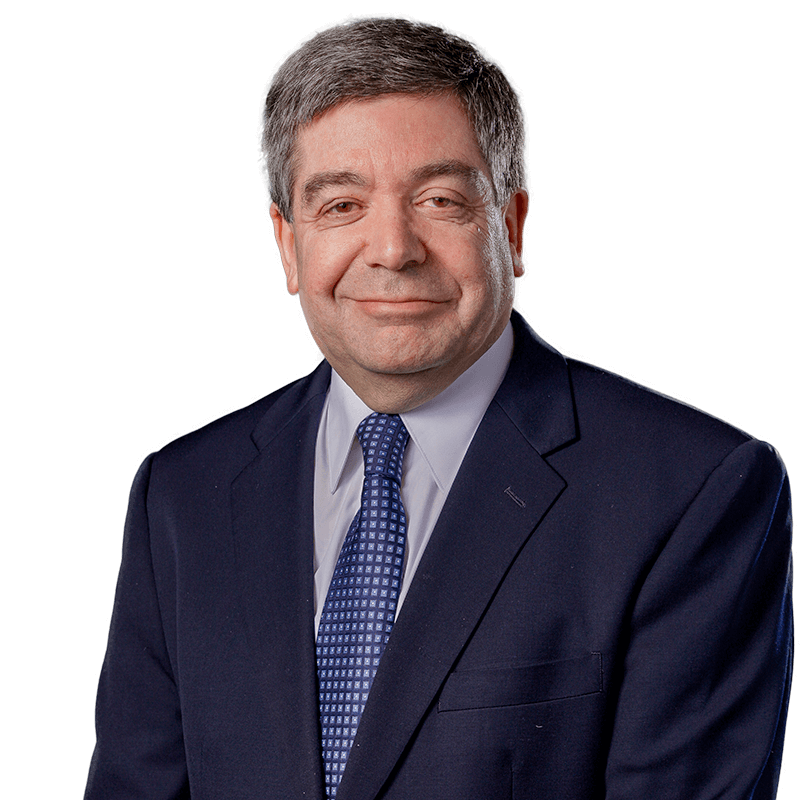At Saiber, we understand the cost associated with litigation, the bureaucracy and delay associated with the court system and the adversarial nature of litigation make it a daunting process for a growing number of individuals and businesses. With this in mind, we have a dual function Alternative Dispute Resolution ("ADR") practice group to assist parties in disagreement or dispute to resolve their differences more quickly, efficiently and in a cost-effective manner. On the one hand, we offer trained professional neutrals who can facilitate early settlements. On the other hand, we offer litigators who are very experienced in advocating for our clients in alternate dispute resolution proceedings.
Our team members are highly experienced in functioning as independent neutrals, i.e., mediators to facilitate settlements by assisting disputants to negotiate a mutually acceptable settlement of their dispute, or as arbitrators to resolve disputes among companies or individuals, all of whom are not our clients. Our lawyers are regularly selected and/or referred by other lawyers and by federal and state courts to function as mediators and arbitrators in business, employment and other matters. Saiber’s team includes a certified professional mediator, lawyers specifically approved by courts to function as mediators, as well as a former New Jersey federal court judge and a former superior Court judge who together possess more than five decades of courtroom experience. Overall, our ADR team members represent more than a century of combined experience in resolving disputes.
Mediation
Our team members are specially trained and/or experienced in helping disputing parties to resolve their differences, often in creative ways, by focusing on their underlying interests rather than their stated positions. This is accomplished through mediation with one of our team members functioning as the mediator. In its simplest form, mediation is a flexible, non-binding, confidential process in which a neutral person facilitates settlement negotiations. The mediator does not decide the merits of the dispute. Rather, the mediator improves communications across party lines, helps parties articulate their interests and understand those of the other party, probes the strengths and weaknesses of each party's legal positions, identifies areas of agreement and helps the disputants to identify and generate options for a mutually agreeable resolution to the dispute. A hallmark of mediation is its capacity to expand traditional settlement discussion and broaden resolution options, often by exploring litigant needs and interests that may be formally independent of the legal issues in controversy. The mediation process allows for the sharing of information needed for meaningful risk assessment as well as for private caucuses with each side of the dispute in a manner designed to lead the parties to common ground. The statistical result of such mediation is a very high percentage of voluntary settlements before substantial further litigation costs are incurred.
Arbitration
Arbitration is an adjudicative process in which a single arbitrator or a panel of three arbitrators issues a binding award on a case’s merits after an expedited, adversarial hearing. The ability of either party to appeal the award is very limited. Arbitration occurs earlier in the life of a case than a trial and is less formal and less expensive. Because testimony is taken under oath and is subject to cross-examination, arbitration can be especially useful in cases that turn on credibility of witnesses. Unlike mediators, arbitrators generally do not facilitate settlement discussions.
Special Master Services
A Special Master is appointed by the court (with the consent of counsel) to assist the court and counsel with their case management responsibilities, including discovery and privilege disputes, in order to keep the case moving towards a fair and reasonable conclusion. Because of the complexity of litigation and the numerous issues that arise as a result, a Special Master is able to remove the day-to-day roadblocks that frequently burden the trial judge and delay ultimate resolution of the matter.
ADR Advocacy
Due to the delays, expense, and uncertainty of trials, the vast majority of lawsuits are settled before trial through voluntary, non-binding mediation or are submitted to adjudication through some form of private arbitration. The skills and experience to advocate for and represent a client successfully in these types of alternate dispute resolution processes are different than pursuing traditional litigation ending in a trial.
Our team of litigators has decades of experience in all aspects of mediation and arbitration. We work closely with our clients to determine if some form of ADR is appropriate in lieu of or complementary to the judicial system, and we draw on our vast experience in all facets of litigation to select the ADR neutrals who will most likely resolve our clients’ disputes successfully and in a quick and efficient manner. As skilled advocates, we represent individuals, closely-held businesses and corporations in mediations and arbitrations, and draw on the insight of our numerous certified mediators, former members of the judiciary, and deep litigation bench in order to simplify and clarify the issues so as to render our clients’ ADR position persuasive. As experienced ADR advocates, we are also skilled at exploring and devising creative ways to have the ADR neutral advance our clients’ underlying interests and goals.
Members

Jennine DiSomma Member
973-645-4803
jdisomma@saiber.com
Download vCard

Robert L. Ritter Member
973-232-0615
rritter@saiber.com
Download vCard

Marc E. Wolin Member
973-622-8401
mwolin@saiber.com
Download vCard
Counsel

Frederic S. Kessler Special Counsel
973-845-7745
fkessler@saiber.com
Download vCard

Jeffrey W. Lorell Special Counsel
973-622-3693
jlorell@saiber.com
Download vCard

Ira B. Marcus Special Counsel
973-232-0603
imarcus@saiber.com
Download vCard

